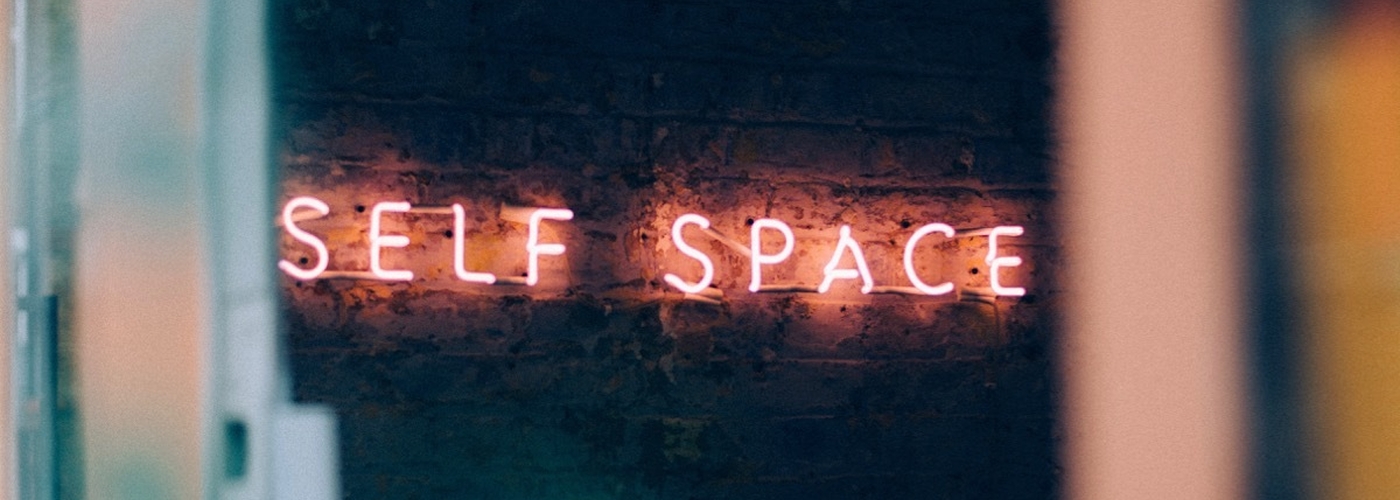We talk to The Self Space about the self-care therapy sessions you can book whenever you need to chat
When we think about self-care, we think of long baths, upping our water intake, maybe a day at a spa. Most of us don’t think of booking ourselves in for therapy - that feels less like self-care and more like a last resort. At least that’s how it’s been in the past.
The biggest catalyst for therapy for the men I work with is that they're really tired of their own shit.
This week private sector therapy provider The Self Space launched its "contemporary mental health service" in Manchester at Ducie House on Ducie Street. It's the first Self Space in the North, and joins three venues in London and Brighton.
Like those, it offers in-person therapy seven-days a week, including in the evenings. There's no waiting list and no rigid schedule. And you can book it all online so you don't even need to talk to anyone. Because yes, you want to talk, just not over the phone to a receptionist.
So already it feels different to the therapy services you get through the NHS or even in the private sector. There's no sense of duress, embarrassment, or failure in booking an appointment here; it's more like signing up for a gym class than entering into the mental health system.
Likewise, when you arrive at their space, the design is modern, welcoming and stylish, like your favourite coffee shop or a Pinterest mood board. It feels like a nice place to be: not clinical, not rundown, and not sad. The things you talk about might be ugly and uncomfortable but your surroundings won't be.
I went to Self Space Manchester to meet the founders, former television presenter Jodie Cariss and fellow Northerner Chance Marshall, and find out more about what they do. They're both experienced clinicians and both have the warmth, humour and calmness you'd hope for in a therapist.
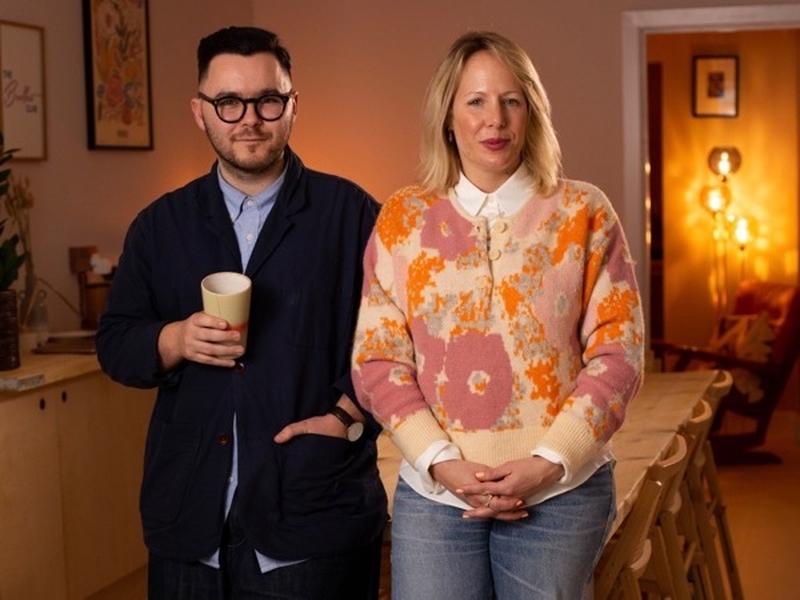
Over the course of a 40-minute conversation, we talked about what they want The Self Space to bring to Manchester, and what you could expect from a session there. We covered why talking to a therapist is different to talking to a friend, why fewer men have therapy than women, and how you might know that therapy is something that you should consider investing in - if you can afford it. The cost is going to be the biggest barrier here - more on that in the interview.
We also talked about their work providing therapy within businesses (their 50-strong client list includes Stylist, Oatley, Depop, Stella McCartney, and several big advertising agencies). And we touched on the self-help book they've written together which will be published by Penguin in May.
Here's our conversation. If it makes you want to start yours, there are details of how to book an appointment at the end.
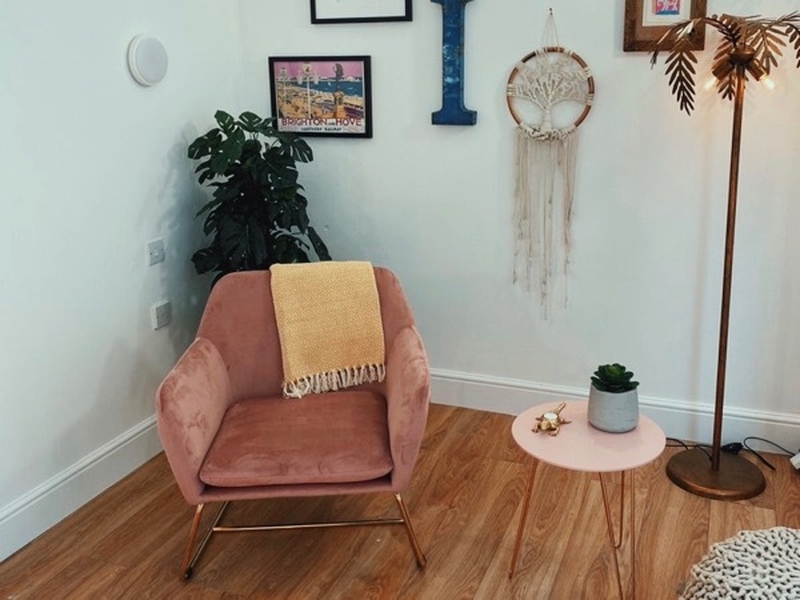
Why did you decide to set up The Self Space?
Jodie Cariss: “I’ve been a clinician for 20-odd years and I was constantly being asked to refer people to a good therapist. That coupled with being invited into businesses and being told to talk about mental health but without saying ‘mental health’."
Chance Marshall: “I don't think there's another service offering access in the way we're offering it, which is straightforward access without a waiting list. Access for same-day appointments if you want. Access that won’t lock you into contracts and will offer flexibility.
“I have friends who go through the NHS and they might wait for six months, and in that time, their anxiety is exacerbated, their depression has got worse. We catch people at a time when it doesn't have to lead to mental illness."
How would someone know that they’re ready for therapy?
CM: “I think people’s curiosity about therapy starts long before the day they walk through the door. We exist for that breadth of people who might just be wondering what it’s like. We have a lot of people who come to therapy with us for the first time in their lives.
“But of course, there’ll be reasons that prompt people to come; anxieties about health, relationships, finances, work. Stress or overwhelm. Or feeling just a bit shit and a bit down.
"It's really low-risk access because they don’t have to go to a GP and find themselves in a long, drawn-out process. They can come for one session and try it and see what it’s like. And more often than not, they feel better when they leave than when they come in.”
JC: "I think there comes a point where we're ready for it. And historically, that's been at crisis point, which is an old-fashioned view of how we should think about building - I hate the word resilience. Let's say more self-knowledge, more self-awareness, to strengthen our inner worlds more.
"I think we need to be ready in ourselves and that might just be a gut feeling that there's some stuff I need to work on, or that I could really benefit from talking about myself.
“We're very shy, particularly as British people, about taking space for ourselves. We think talking about ourselves is self-indulgent. We’re embarrassed.”
CM: “Particularly in the North as well. As Northerners, we grow up within cultures that tell us there’s always someone worse off. It’s a real obstacle in the way of us taking care of ourselves.
“The biggest catalyst for therapy for the men I work with is that they're really tired of their own shit. They're tired of pretending that everything's okay, they’re tired of being short and angry at their partners, and tired of not performing at work. And I think that's a really good catalyst for growth and change.
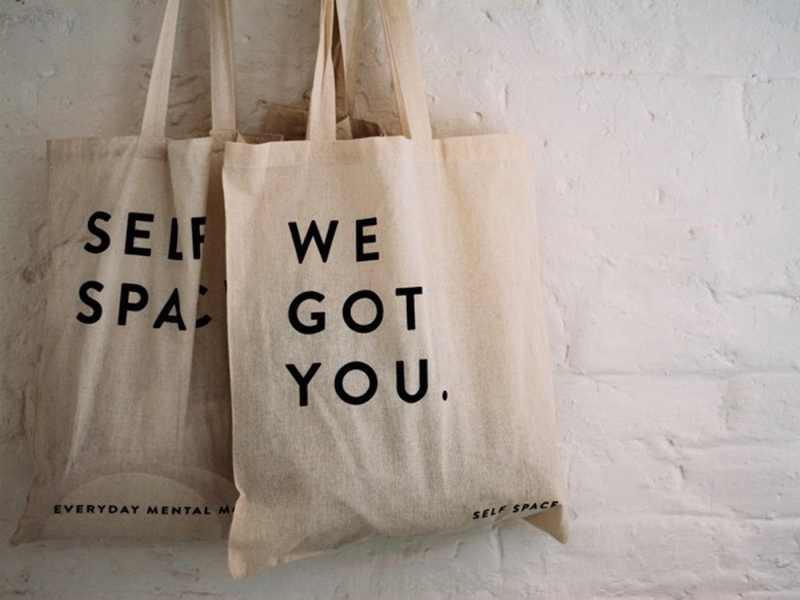
Do you get many men coming to therapy?
JC: “It’s still mainly women. We’re getting there; we've got a series of workshops called Talking Men's Club, and we are seeing more men come through the door.
"We’ve got normal, everyday men on the therapy team. I think that helps break down stigma and push things on a bit. But it's definitely a harder audience to crack."
CM: “National statistics for the UK and for the US are more or less the same, which is two-thirds women and one-third men in psychological therapies."
What’s the difference between talking to a therapist and talking to a friend?
JC: “The therapist is with you in the experience, but they don't have their own problems that live in the room with you.
"Also I think it can be quite toxic in friendships, like, when do you get to the tipping point? Where is the boundary? How does a friend help you see parts of yourself that you can't see? How do they push back?
“A therapist is trained to let you be cross with them. To allow things to grow in the room that we might be terrified of in our friendships; of being abandoned, of making someone angry and upset.”
CM: “Not many of our friends are able to sit with us and bear our suffering. Often it might cause uneasiness within them and they might rush to this rescuer role and we’re stuck in victim.
"A therapist is someone who's acclimatised to the suffering of people, and for that reason, we're able to sit, and be alive to, and bear, and reach towards a deeper understanding of the things people are suffering with.
“Friends, my friends certainly, might say, ‘Oh let's just get pissed.’ They can hear a little bit, but they’ll get to a point where they’ll rush to an emotional exit, or rush to fix it when more often than not, we don’t need advice; we need someone to bear our experience with us and say, I’ve got you.
“The other thing that therapy facilitates that friendships don’t is an ability to really be with ourselves and find better solutions within us, not in someone externally. That can be a really precarious way of dealing with emotional distress; when you go to somebody else. But a good therapist; their job is to get you in touch with the parts of yourself that are able to come up with the solutions, and make decisions and have clarity.”

What can people expect at their first therapy session?
CM: “I don't want over-generalise because it really is quite different depending on who you see. But, with us, you can expect a place to land, a place to talk about what's going on for you right then and there. You can expect a conversation - a dialogue - not just a blank therapist who’s going to sit and not offer you anything.
"And you can expect collaboration; the therapist isn’t going to do all the work. It's for you to ‘show up’ and have a sense of what you’re there for, and if you don’t, to work with the therapist to work that out.
"I think the sign of a good first session is the therapist seeming a little bit ahead of us, so they're able to ask us the right questions and hold a space for us."
You have a book coming out in May with Penguin, called How To Grow Through What You Go Through. One thing that stood out to me when reading it was the emphasis on being emotionally messy, and the acceptance of that, rather than on fixing it.
CM: “It’s definitely not about fixing yourself because we don’t think people are broken. I’d go further than that and say it’s about being supported to get in touch with all the ways you’re already enough. All the ways you're doing okay and living well.
"It’s removing obstacles that prevent you from believing you’re enough, as opposed to constant self-optimisation which you see a lot of within coaching cultures. They're always geared towards being the best you can be all the time. Everyone’s exhausted by that."
How many sessions do people tend to have?
JC: “You can come once a year, or you can stay in therapy every week for as long as you want. It depends on where you're at and what you're working with.
“Some people will come every week, then not come for a while, then something happens and they come back. In some clinical settings, you finish your sessions and then you never see that service again. Whereas here, it’s much more autonomous."
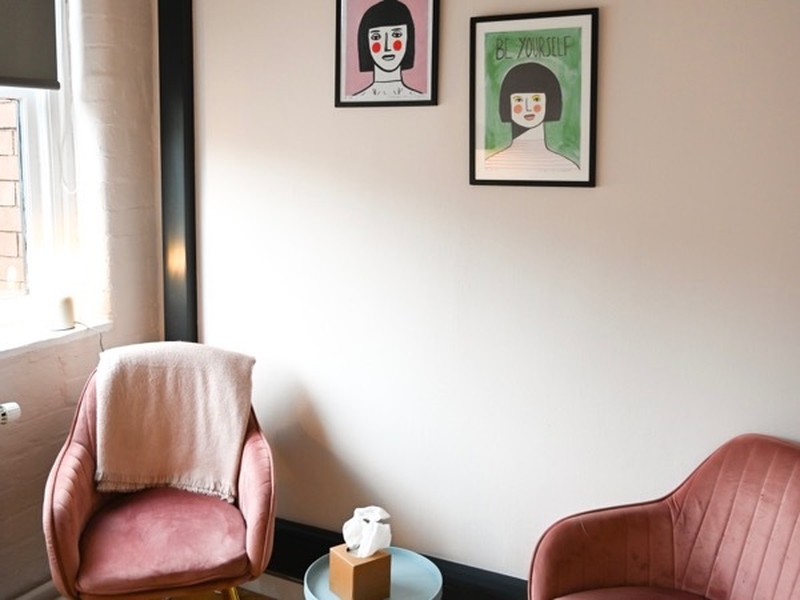
Tell me about the work you do with businesses
CM: “We work with businesses in a bespoke way, so that might look like access to a bundle of therapy sessions, which are accessed confidentially, in person or online. We also work through workshops and talks.
"So we think about how we shift the culture of mental health within businesses. What I mean by that is, how are we talking about it? How are managers trained up? What is our approach when someone isn't doing well? How can we create an inclusive culture for the communities within our business, the queer community or the ethnic minority communities? How do we facilitate places of belonging and not just of work?"
JC: "What happens is businesses tend to realise that an EAP [Employee Assistance Programme - counselling for employees] is a bit rigid for the needs of their people. It does serve a purpose but it's very clinical. They want something more accessible, more everyday. We have a lot of engagement with HR leads who say, we don't really know what we need, but we need something.
CM: "The thing about EAP schemes, is that their success is based on low engagements. So engagement with an EAP scheme can be anywhere from 2.5% to 7.5% of people. With us, it's around 40%. Huel, one of our partners, have about 300 staff and 50% of them use our service.”
So the business doesn't see people getting therapy as a failure?
CM: “No. It's about how you keep on top of your work, how you keep feeling well, how you make good relationships great. It's really geared towards wellness as opposed to illness."
JC: “Before, therapy had this shame factor, which is so unhelpful. We want to reshape that and champion people 'doing the work’. We want to celebrate how much this can positively impact your work life, your home life, your sense of wellbeing. I really think talking in this way can help people reach their potential at work, as well as at home."
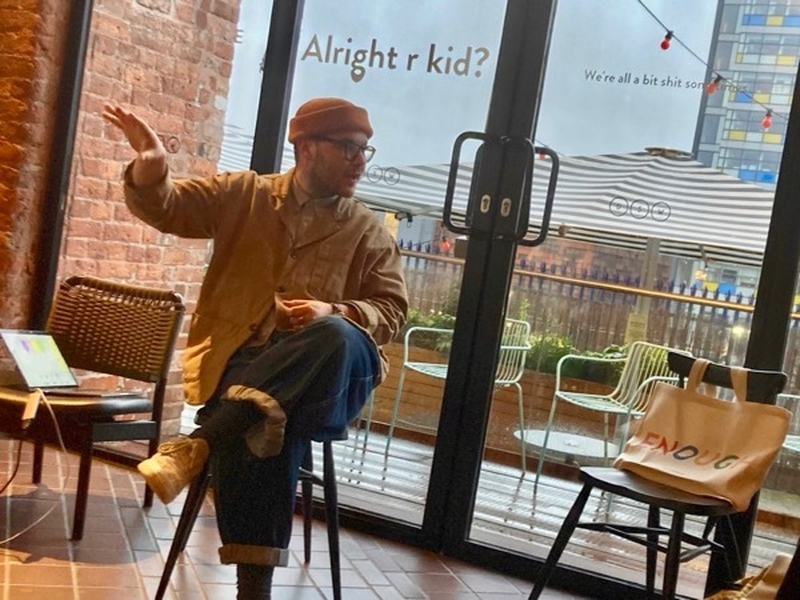
Is there a danger that businesses will invest in therapy sessions without addressing the things, like overwork or bullying, that could be impacting on their employees' mental health?
JC: "If we think we're being brought in as a band-aid, where they're not thinking about systemic change, we’ll challenge that, and if we feel we can make some traction, we'll work with them. And if we don't, we'll say they're not the right partner for us because I don’t think we should be used as a tick-box activity. If we think that businesses are doing a disservice to their people, we'll call it out.
“We are very lucky and we do attract partners that do want change and to receive feedback about things that we think might support the business.”
CM: “I don't think we work with companies just because they have a guilty conscience. What we’ve found is that with the conversation around mental health really improving compared to what it was ten years ago, there are a lot more senior leaders charging these initiatives from a place of experience.
"They'll say, ‘I went through this, I want our company to do more about this.’ Often it's a really passionate leader in that company who champions mental health and that makes the partnership a lot more congruent.”
How much does it cost for a session?
CM: “It’s £60 for 30 minutes and £80 for 50 minutes. If you buy a bundle, there’s a discount. And there’s a Manchester promo: it’s half price until the end of April. There are special rates for NHS workers, teachers and students.”
Is it the same price as it is in London?
JC: "Yes. What do you think about that?"
I think people generally earn less up here so they might not have the same disposable income.
JC “We’ve had the same feedback for Brighton. It’s a challenge because we service businesses virtually, so it’s difficult to price per location.
"We think about mental health money as luxury money, so people say, oh I can’t afford that. But they can afford ten cocktails on a Friday night or four pairs of really fancy shoes. I’m not saying that’s everyone. It’s a generalisation. But they can’t afford this thing that might stop them needing the ten cocktails and four pairs of shoes? It might not, but it might help.
"I think it’s going to take us a while to get them to allocate that money."
CM: “Also we’re not here just to do one-to-ones. A big focus in Manchester is how we can offer community sessions. So we’ve got a programme of workshops that we’ll be running across the city where the entry points will be lots cheaper - they’ll be anything from £25 to £45 for group sessions. We’re really thinking about how we use those cheaper, more accessible entry points for people to have an experience of therapy.”
If someone’s interested in booking a session, what do they do next?
CM: “Go to theselfspace.com. The promo code for half price sessions is: alrightrkid. It expires on 30 April 2022."
Follow Sarah on Instagram @bodyconfidential
Read next: Natural high: fitness and wellness festivals near Manchester
Read again: So cold it burns: we go full Wim Hof in Sale Water Park
Get the latest news to your inbox
Get the latest food & drink news and exclusive offers by email by signing up to our mailing list. This is one of the ways that Confidentials remains free to our readers and by signing up you help support our high quality, impartial and knowledgable writers. Thank you!





